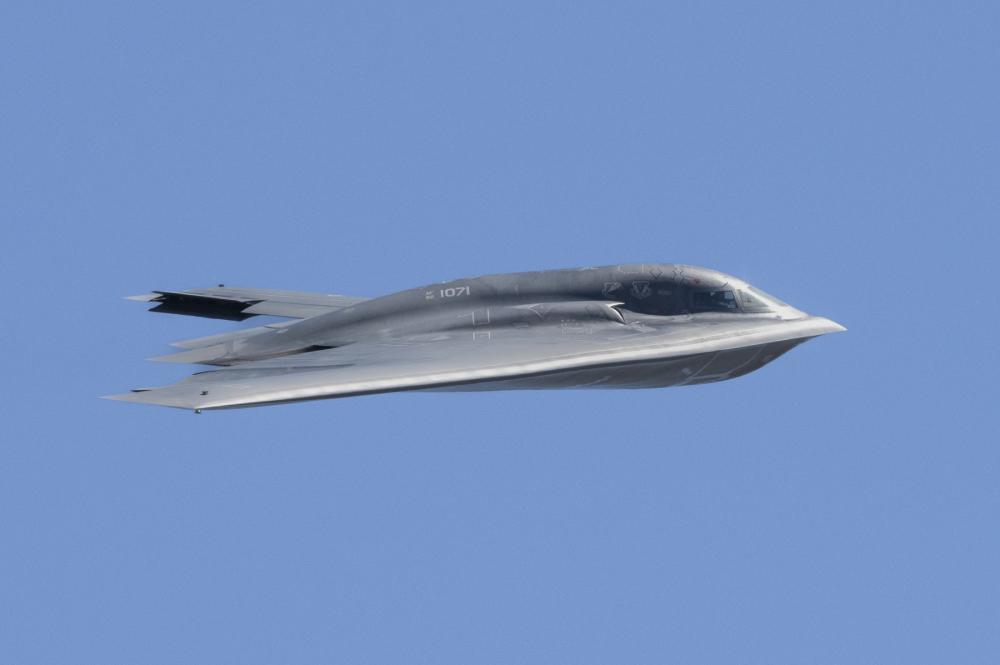A B-2A Spirit stealth bomber released a B61-12 Joint Test Assembly utilizing a new capability known as Radar Aided Targeting System during a capstone test at the Tonopah Test Range, June 14, 2022. Tested only on the B-2, RATS improves weapon guidance accuracy in a Global Positioning System-degraded environment. A software tool designed in-house by the 72d TES was also flight tested. Known as the RATS Application Tool, it provides pilots an early indicator of the RATS’ functionality, verifying that the system is operating correctly prior to weapon release. Future B61-12 JTA releases will be conducted during annual Weapon System Evaluation Program flight tests as part of Department of Energy/National Nuclear Security Administration and Department of Defense surveillance tests.
“We flew multiple sorties testing the new RATS capability over the last nine months and collected test points on its performance. Using RATS for the JTA release demonstrated what the new capability brings to the warfighter. This test was also the first release of the production unit of the B61-12 JTA,” said Capt. David Durham, 72d Test and Evaluation Squadron B-2 weapons flight commander.
“Modernization is at the forefront of our minds as we plan and execute each of these tests. The development of this tactic and the creation of the innovative software tool speak to the dedication and ingenuity of this team. They are focused on equipping the warfighter for today’s fight,” said Lt. Col. Aaron Young, 72d TES commander.

The test event was led by a collaborative effort between the 72d TES, the 509th BW, Air Force Global Strike Command, the Air Force Nuclear Weapons Center, Boeing Company, and Sandia National Labs. The 53rd Wing provides tactical advantage to the warfighter at the speed of relevance. By testing new operational capabilities and evaluating fielded capabilities, the 53rd Wing is bringing the future faster while answering the warfighter’s demands for integrated, multi-domain capabilities. The 53d Wing is a wing of the United States Air Force based at Eglin Air Force Base, Florida. The 53d Wing serves as the focal point for the combat air forces in electronic warfare, armament and avionics, chemical defense, reconnaissance, and aircrew training devices.
The Northrop (later Northrop Grumman) B-2 Spirit, also known as the Stealth Bomber, is an American heavy strategic bomber, featuring low observable stealth technology designed for penetrating dense anti-aircraft defenses. Designed during the Cold War, it is a flying wing design with a crew of two. The bomber is subsonic and can deploy both conventional and thermonuclear weapons, such as up to eighty 500-pound class (230 kg) Mk 82 JDAM GPS-guided bombs, or sixteen 2,400-pound (1,100 kg) B83 nuclear bombs. The B-2 is the only acknowledged aircraft that can carry large air-to-surface standoff weapons in a stealth configuration. The B-2 is capable of all-altitude attack missions up to 50,000 feet (15,000 m), with a range of more than 6,000 nautical miles (6,900 mi; 11,000 km) on internal fuel and over 10,000 nautical miles (12,000 mi; 19,000 km) with one midair refueling.















